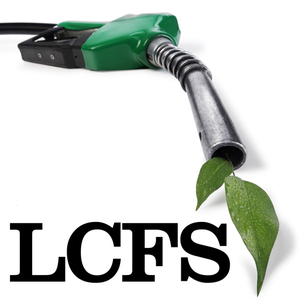LCFC urges CARB to recognize climate smart ag in LCFS rulemaking

August 17, 2022
BY Erin Krueger
The Low Carbon Fuels Coalition on Aug. 7 sent a letter to the California Air Resources Board urging the agency to recognize farming practices and other methods of climate smart agriculture (CSA) in its upcoming Low Carbon Fuel Standard rulemaking.
“Specifically, we are encouraging CARB to recognize CSA within the next iteration of the CA-GREET model that underlies the LCFS program,” the group wrote in the letter.
According to the LCFC, CARB could take a leading role in incentivizing climate smart farming practices in all locations that grow feedstock for LCFS pathways by quantifying CSA in CA-GREEET and in LCFS pathways. Incorporating CSA into the rulemaking would also help build knowledge regarding the short- and long-term effectiveness of various CSA strategies and speed fulfillment of California’s aggressive decarbonization goals. “According to the Intergovernmental Panel on Climate Change, soil carbon sequestration provides 89 percent of the global technical GHG emission mitigation potential from agriculture,” the LCFC wrote. “This topic therefore warrants consideration in the LCFS Rulemaking.”
Advertisement
The LCFC also noted that quantifying greenhouse gas (GHG) emissions for biofuel feedstocks from farm practices, at either the farm-level or on aggregate, and assigning corresponding carbon intensity scores would create many policy benefits. It would compensate farmers, on a voluntary basis, for climate-smart farming practices. It would also create an incentive for continuous improvement to advance sustainable farming practices that sequester carbon and improve yields, improve water quality and soil health, and held achieve scale more quickly than voluntary private carbon market programs.
The LCFC stresses that on-farm conservation measures should be voluntary and that continuous improvements in climate-smart farming practices should be incentivized. The LCFC also said protocol design should strike a balance between precision and cost for farmers and producers and should be updated during LCFS rulemakings to reflect the substantial capital investments occurring and the continuous improvements in technology being made. In addition, the LCFC said GHG lifecycle assessments, including the assessment of climate-smart farming practices should be non-proprietary, transparent, verifiable and repeatable.
Advertisement
In addition to the LCFC, the letter is signed by representatives of the Great Plains Institute, the American Coalition for Ethanol, Adelante Consulting Inc., Alder Fuels, the Canadian Oilseed Processors Association, the Canola Council of Canada, Clean Fuels Alliance America, EcoEngineers, Fueling Sustainability, Gevo, Green Plains, Indigo, the National Sorghum Producers, Neste, Next Renewable Fuels Inc., Novozymes, the Renewable Fuels Association, SCS Global Services, and the U.S. Canola Association.
Related Stories
The U.S. EPA on July 8 hosted virtual public hearing to gather input on the agency’s recently released proposed rule to set 2026 and 2027 RFS RVOs. Members of the biofuel industry were among those to offer testimony during the event.
The USDA’s Risk Management Agency is implementing multiple changes to the Camelina pilot insurance program for the 2026 and succeeding crop years. The changes will expand coverage options and provide greater flexibility for producers.
EcoCeres Inc. has signed a multi-year agreement to supply British Airways with sustainable aviation fuel (SAF). The fuel will be produced from 100% waste-based biomass feedstock, such as used cooking oil (UCO).
President Trump on July 4 signed the “One Big Beautiful Bill Act.” The legislation extends and updates the 45Z credit and revives a tax credit benefiting small biodiesel producers but repeals several other bioenergy-related tax incentives.
CARB on June 27 announced amendments to the state’s LCFS regulations will take effect beginning on July 1. The amended regulations were approved by the agency in November 2024, but implementation was delayed due to regulatory clarity issues.
Upcoming Events










